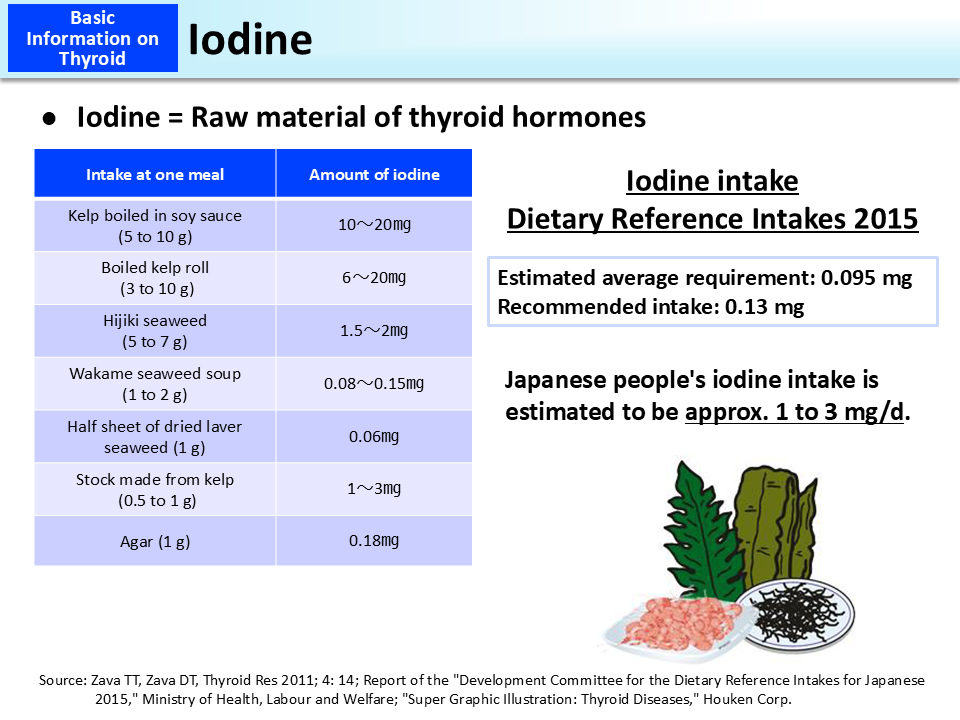Iodine
Iodine, which is a raw material of thyroid hormones, is contained in large quantities in seaweed, fish and seafood that are familiar to Japanese people.
The “Dietary Reference Intakes for Japanese” released by the Ministry of Health, Labour and Welfare states that the estimated average iodine requirement is 0.095 mg per day and recommended intake is 0.13 mg per day. Japanese people consume a lot of seaweed, fish and seafood on a daily basis and are considered to take in a sufficient amount of iodine (estimated to be approx. 1 to 3 mg/d).
When a person habitually consumes iodine, the thyroid constantly retains a sufficient amount of iodine. It is known that once the thyroid retains a sufficient amount of iodine, any iodine newly ingested is only partially taken into the thyroid and most of it is excreted in the urine.
Accordingly, even in the case where radioactive iodine is released due to such reasons as an accident at a nuclear power plant, accumulation of the released radioactive iodine in the thyroid can be subdued among a group of people who take in iodine on a daily basis.
In preparation for any emergency exposure such as due to a nuclear accident, efforts are being made to deliver stable iodine tablets, non-radioactive iodine tablets formulated for oral administration, in advance or in an emergency.
- Included in this reference material on March 31, 2017
- Updated on March 31, 2021

